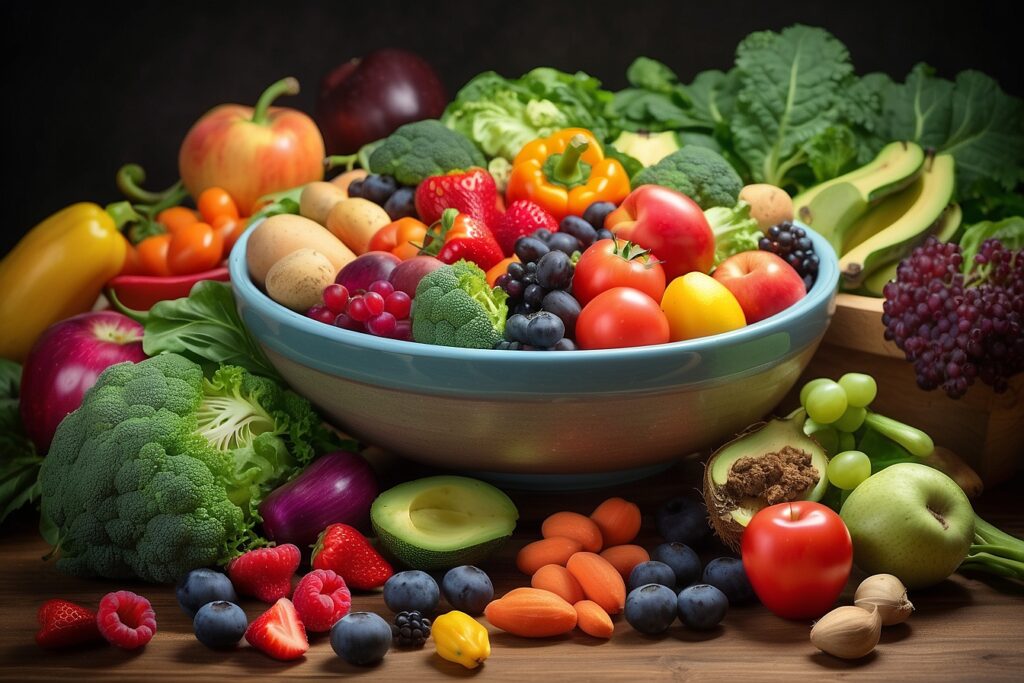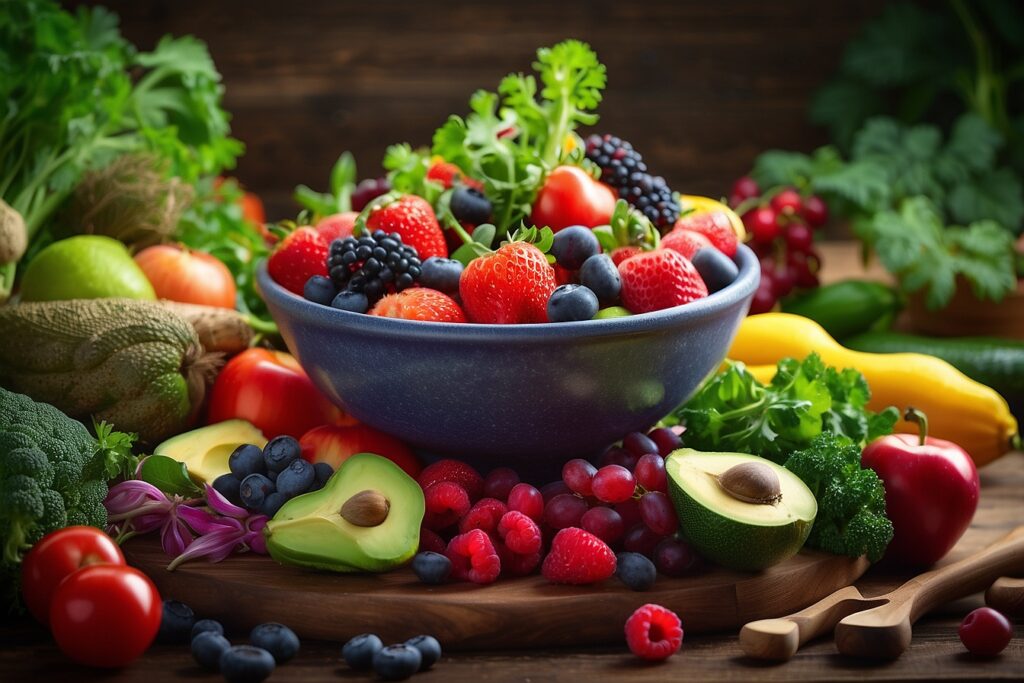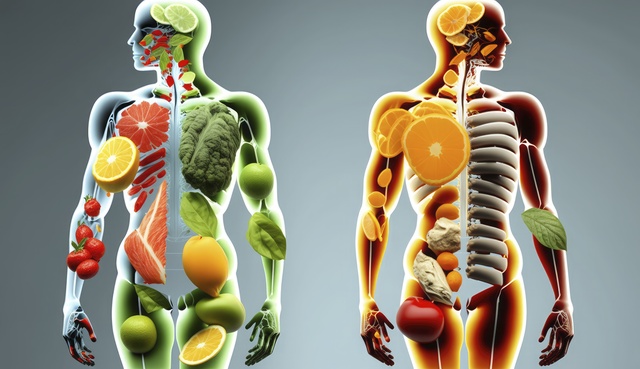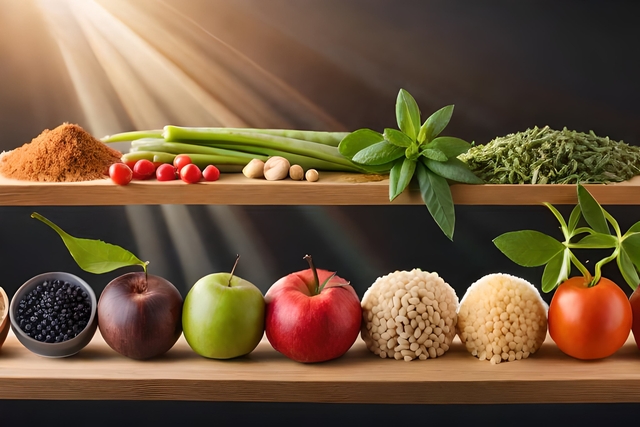Introduction

Phytonutrients, also known as phytochemicals, are natural compounds found in plant-based foods that provide numerous health benefits.
Their presence is not only responsible for vibrant colors and aromas in fruits and vegetables but also for their nutrient-rich properties.
As an essential component of a balanced diet, They play a vital role in promoting overall health and combating various diseases.
Understanding the different categories of phyto-nutrients can help us unlock their remarkable potential and realize the true power they hold in optimizing our well-being.
Antioxidant Phytonutrients
Antioxidant phyto-nutrients are plant-based compounds that provide numerous health benefits.
Found abundantly in fruits, vegetables, nuts, and seeds, these compounds help protect the body from oxidative stress and inflammation by neutralizing harmful free radicals.
Examples include flavonoids in berries and tea, carotenoids in carrots and tomatoes, and polyphenols in cocoa and red wine.
Incorporating a variety of antioxidant-rich foods into your diet promotes overall well-being.
Types of Antioxidant Phytonutrients
Antioxidant phyto-nutrientsencompass a diverse range of compounds, including carotenoids, flavonoids, and phenolic acids.
Carotenoids, such as beta-carotene and lycopene, offer vibrant red, orange, and yellow hues to fruits and vegetables.
Flavonoids, such as quercetin and catechins, are abundantly found in berries, tea, and dark chocolate.
Phenolic acids, like ferulic acid and caffeic acid, are commonly present in fruits, vegetables, and whole grains.
Health Benefits of Antioxidant Phytonutrients
1. Protection against Chronic Diseases
Antioxidant phyto-nutrients neutralize harmful free radicals in the body, protecting against cellular damage and reducing the risk of chronic diseases, including cardiovascular diseases, cancer, and age-related macular degeneration.
2. Support for Cardiovascular Health
Antioxidant-rich foods contribute to maintaining cardiovascular health by reducing oxidative stress, improving blood vessel function, and decreasing inflammation markers, ultimately lowering the risk of heart disease.
3. Boosting Immune Function
The powerful antioxidant properties of these components help boost the immune system’s defense against pathogens.
They aid in the production of antibodies, strengthen resistance to infections, and reduce the duration and severity of illnesses.
Anti-inflammatory Phytonutrients

Anti-inflammatory phytonutrients are natural compounds found in plant-based foods that possess the ability to reduce inflammation in the body.
These include flavonoids found in fruits like berries and citrus fruits, as well as vegetables like spinach and kale. Other examples include curcumin in turmeric, resveratrol in grapes, and quercetin in onions.
Incorporating these foods into your diet can help alleviate inflammation and promote overall health.
Types of Anti-inflammatory Phytonutrients
Anti-inflammatory phytonutrients, such as curcumin, resveratrol, and quercetin, possess potent anti-inflammatory properties.
Curcumin, found in turmeric, is hailed for its ability to combat inflammation at the molecular level. Resveratrol, found in grapes and red wine, exhibits anti-inflammatory effects by inhibiting certain enzymes.
Quercetin, present in apples, onions, and citrus fruits, helps reduce inflammation and allergies.
Health Benefits of Anti-inflammatory Phytonutrients
1. Reduction of Inflammation
Anti-inflammatory phytonutrients alleviate inflammation by suppressing the production of pro-inflammatory substances.
This can help manage chronic inflammatory conditions like arthritis, asthma, and inflammatory bowel disease.
2. Alleviation of Joint Pain
The anti-inflammatory properties of certain phyto-nutrients, such as curcumin and resveratrol, can provide relief from joint pain and stiffness associated with conditions like osteoarthritis and rheumatoid arthritis.
3. Prevention of Chronic Inflammatory Diseases
By reducing chronic inflammation, anti-inflammatory phyto-nutrients may help in preventing the development of chronic diseases like diabetes, obesity, and even cancer.
Detoxifying Phytonutrients
Detoxifying phytonutrients are natural compounds found in certain plant-based foods that support the body’s detoxification processes.
These include sulfur-containing compounds like glucosinolates found in cruciferous vegetables such as broccoli and cabbage.
Additionally, foods rich in chlorophyll, such as spinach and parsley, help cleanse the body by supporting liver function.
Including these foods in your diet can aid in detoxification and promote overall health.
Types of Detoxifying Phytonutrients
Detoxifying phyto-nutrients, including glucosinolates, sulforaphane, and indole-3-carbinol, aid in the body’s natural detoxification process.
Glucosinolates, abundant in cruciferous vegetables like broccoli and cabbage, are broken down into bioactive compounds such as sulforaphane.
Indole-3-carbinol, also found in cruciferous vegetables, supports the body’s detoxification pathways.
Health Benefits of Detoxifying Phytonutrients
1. Enhancing the Body’s Detoxification Process
Detoxifying phyto-nutrients promote the elimination of harmful substances by activating detoxification enzymes, enhancing liver function, and supporting kidney health.
2. Reducing the Risk of Cancer
Certain detoxifying phytonutrients, such as sulforaphane, show promise in reducing cancer risk by neutralizing carcinogens, inhibiting tumor growth, and inducing cancer cell death.
3. Supporting Liver Function
Detoxifying phyto-nutrients aid in optimizing liver function, helping the organ efficiently eliminate toxins from the body. This can lead to improved overall health and reduced risk of liver diseases.
Conclusion
Incorporating phyto-nutrients-rich foods into our diets is a powerful way to enhance our overall well-being.
From antioxidant and anti-inflammatory properties to neuroprotection and cardiovascular support, the diverse categories of phyto-nutrients have an extensive range of health benefits to offer.
By understanding and embracing the potent potential of these natural compounds, we unlock the key to achieving optimal health and resilience against various diseases.
Frequently Asked Questions
Q1. What are the best food sources of phyto-nutrients?
phyto-nutrients are abundant in a wide variety of plant-based foods, such as colorful fruits and vegetables, whole grains, legumes, nuts, and seeds.
Q2. Can phyto-nutrients replace medications?
phyto-nutrients should not replace prescribed medications, but they can complement a healthy lifestyle and potentially reduce the risk of certain diseases.
Always consult with a healthcare professional before making any changes to your medication regimen.
Q3. Are there any side effects of consuming phyto-nutrients?
phyto-nutrients are generally safe when consumed through food sources.
However, some individuals may experience mild allergic reactions to specific phytonutrients.
It is essential to listen to your body and consult a healthcare professional if you have any concerns.
Q4. How can I incorporate phyto-nutrients into my diet?
To incorporate phyto-nutrients into your diet, aim for a colorful plate filled with fruits and vegetables of various hues.
Consider diversifying your choices and opting for local, seasonal produce whenever possible.
Q5. Is cooking or processing food detrimental to phyto-nutrients content?
Cooking methods like steaming and stir-frying are preferable as they help preserve phyto-nutrients, whereas boiling or excessive heating may lead to some loss.
However, the overall impact on phyto-nutrients content depends on the specific food and cooking technique used.








Wow, superb blog layout! How lengthy have you
been blogging for? you made running a blog look
easy. The entire look of your website is magnificent, let alone
the content material! You can see similar here sklep internetowy
Профессиональный сервисный центр по ремонту сотовых телефонов, смартфонов и мобильных устройств.
Мы предлагаем: ремонт смартфонов
Наши мастера оперативно устранят неисправности вашего устройства в сервисе или с выездом на дом!
Your article helped me a lot, is there any more related content? Thanks!